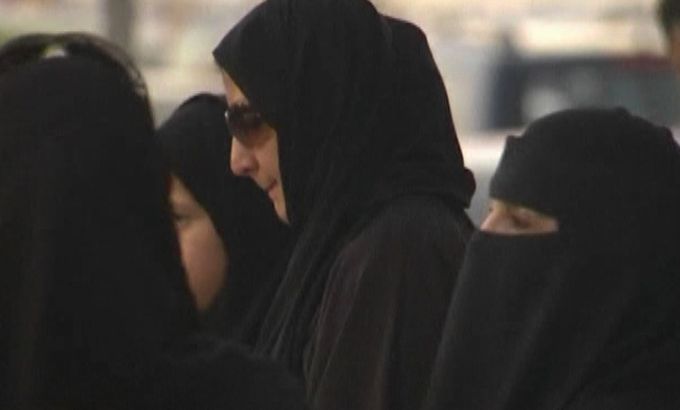Saudi women defy ban to take driver’s seat
Several women drive around in kingdom in open defiance of rule that prohibits them from driving.

A number of Saudi women have defied a ban on driving by getting behind the wheel in the conservative kingdom.
Friday’s show of defiance came in response to calls on social networking sites to defy the ban that prohibits women from driving in the kingdom.
Keep reading
list of 4 itemsAfter the Hurricane
World’s coral reefs face global bleaching crisis
Why is Germany maintaining economic ties with China?
“We’ve just returned from the supermarket. My wife decided to start the day by driving to the store and back,” said columnist Tawfiq Alsaif on his Twitter page on Friday.
“I took King Fahd Road [Riyadh artery] and then Olaya Street, along with my husband, I decided that the car for today is mine,” local resident Maha al-Qahtani tweeted.
She also told the AFP news agency that driving is “a right for women that no law or religion bans … I went out to get my right, so that it would be up to me to drive or not”.
Her husband Mohammed al-Qahtani tweeted that she carried her necessary belongings “ready to go to prison without fear”.
The en masse action was the first since November 1990, when a group of 47 Saudi women stunned men by driving around Riyadh in 15 cars before being arrested.
‘Mutiny against male-only rules’
Activists had not appealed for mass protests in any specific sites, but had urged Saudi women to begin a mutiny against the male-only driving rules.
Women who had driving licences obtained abroad were urged to run their errands themselves without relying on male drivers.
|
|
“We want women from today to begin exercising their rights,” Wajeha al-Huwaidar, a Saudi women’s rights activist, said.
She had posted internet clips of herself driving in 2008.
“Today on the roads is just the opening in a long campaign,” she said. “We will not go back.”
Friday is the climax of a two-month online campaign riding the winds of the so-called Arab spring, which has spread mass revolts across the region and toppled two regimes.
The main Facebook page campaign, dubbed Women2Drive, says the action will keep going “until a royal decree allowing women to drive is issued”.
Women in Saudi Arabia face an array of constraints, ranging from having to cover from head to toe in public and needing authorisation from a male guardian to travel, to having restricted access to jobs due to strict rules of segregation.
The driving campaign follows the 10-day detention last month of 32-year-old Manal al-Sherif, after she posted video of herself driving.
She was released after reportedly signing a pledge that she would not drive again or speak publicly.
Her case, however, sparked an outcry from international rights groups and brought direct appeals to Saudi’s rulers to lift the driving ban on women – the only such countrywide rule in the world.
Earlier this week, a group of women drove around the Saudi embassy in Washington to protest the kingdom’s ban on female drivers. Similar convoys converged on Saudi diplomatic missions in other cities around the world.
Difficult choices
Calls for an ongoing road rebellion could push Western-backed Saudi authorities into difficult choices: either launching a crackdown and facing international pressure or giving way to the demands and angering traditional-minded clerics and other groups opposing reforms.
The men-only driving system is supported by clerics backing austere interpretations of Islam and enforced by powerful morality squads.
The last en masse protest against the ban on female drivers was held in November 1990 when a group of women stunned Saudi men by driving around Riyadh in 15 cars before being arrested.
There is no written Saudi law barring women from driving – only fatwas, or religious edicts, by senior clerics following a strict brand of Islam known as Wahhabism.
They claim the driving ban protects against the spread of vice and temptation because women drivers would be free to leave home alone and interact with male strangers. The prohibition forces families to hire live-in
drivers or rely on male relatives to drive.
Saudi King Abdullah has promised some social reforms, but he depends on the clerics to support his ruling family and is unlikely to take steps that would bring backlash from the religious establishment.